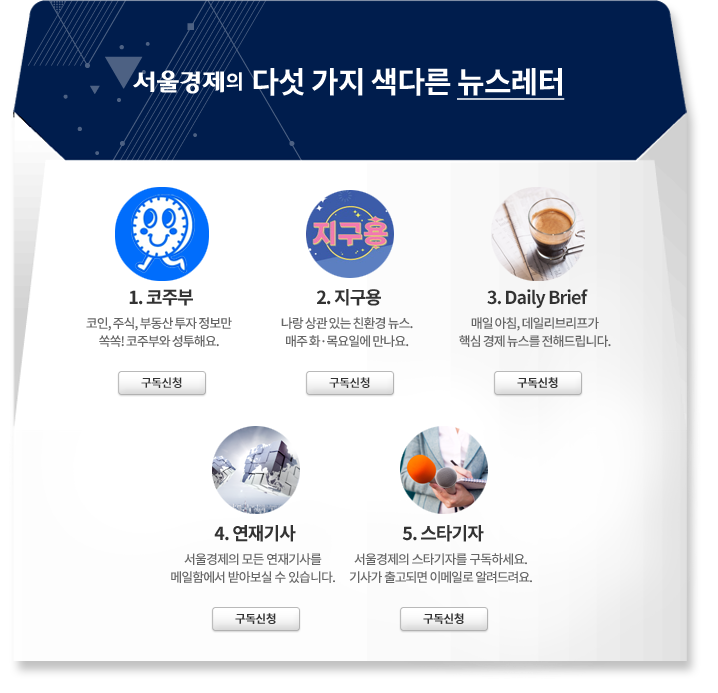제목
The Fed‘s Loose Money Policy Is Risky, Unfair Essential
연준의 느슨한 금융 정책은 위험하고 불공평하다. 하지만 꼭 필요하다.
By John Cassidy
First Quantitative Easing
1차 양적 완화
ASSET BUBBLE? In late 2008 the Fed started buying back financial instruments to keep interest rates low. About a year later the U.S. stock market took off.
자산 거품? 연준이 2008년 말 금리를 낮게 유지하기 위해 국채 매입에 나선 지 대략 1년 후, 미국 증시는 상승하기 시작했다.
본문
At least for now, quantitative easing-the central-bank practice of creating large sums of money to purchase financial assets-is no more in the U.S.: At the end of October the Federal Reserve announced it was switching off the gusher. (A day later, Japan announced it was moving in the opposite direction.) In many quarters, the response was one of relief. Since the Fed opened for business a century ago, it has seldom, if ever, carried out a more controversial policy.
^최소한 현재로선 미국에서 양적 완화(Qualitative Easingㆍ이하 QE)―국채 매입을 위해 엄청난 자금을 공급하는 중앙은행의 정책―가 중단됐다. 연준은 10월 말 돈줄을 죄고 있다고 발표했다(다음 날 일본은 정반대의 정책을 내놓았다). 그리고 많은 측면에서 다행스럽다는 반응이 나왔다. 연준이 100년 전 업무를 시작한 이후 QE보다 더 논란이 됐던 정책은 거의 없었다.
Many conservatives regard QE as a misguided attempt to subvert the currency that will inevitably lead to an inflationary spiral, a speculative bubble, or both. From the left, even from some establishment voices, comes the charge that QE is a means of enriching the 1% accentuating inequality. (One former Fed official described it as “the greatest backdoor Wall Street bailout of all time.”) Meanwhile, there are economists who question QE on a more basic level: It doesn’t work, they insist.
^많은 보수주의자들은 QE를 미 달러의 위상을 전복시켜 결국 인플레 소용돌이나 투기 거품, 혹은 이 두 가지 모두를 낳게 하는 잘못된 조치라고 여기고 있다. 진보주의자들과 심지어 일부 기득권층조차 QE가 상위소득 1%의 부를 키워 소득 불균형을 심화시키는 수단이라고 비판한다(전 연준 관계자는 QE를 “역사상 최대의 월가 구제 꼼수”라고 묘사했다.) 한편 더욱 근본적인 관점에서 QE에 문제를 제기하는 경제학자들도 있다. 이들은 QE가 별 효과가 없다고 주장한다.
It‘s easy to see where the critics are coming from. In the past six years the Fed’s balance sheet has expanded by $3.5 trillion, a figure that has a whiff of the Weimar Republic about it. And because QE has helped raise asprices, the beneficiaries are those who own a lot of stocks real estate: i.e., the rich. The poorest 50% of U.S. households, who possess just 1% of the country‘s wealth (yes, it’s that low), haven‘t seen much gain from QE.
^이런 비난이 나오는 이유는 간단하다. 지난 6년간 연준의 재정은 3조 5,000억 달러 정도 팽창했다. 과거 독일 바이마르 공화국(Weimar Republic)을 연상시키는 재정 확대이다./* 역주: 바이마르 공화국이 세계 1차대전 전후 통화량을 급격히 늘리면서 물가가 100억 배 이상 상승했던 것을 빗댄 말이다/ 또 QE가 자산 가격 상승에 일조하기 때문에, 이 정책의 수혜자는 주식과 부동산을 많이 소유한 사람들이 된다: 맞다. 부자들이다. 미국 전체 부의 1% 밖에 차지하지 못하는 (정말 이 정도로 낮다) 하위소득자 50%는 QE로부터 얻는 게 별로 없다.
But despite all this, the critics are wrong. QE is potentially dangerous, it’s unfair. In certain circumstances, though, it‘s essential. After a financial crisis, such as the one we saw in 2008, it can be used to prop up the banking system help restore normal intermediation. And in a slow-growing economy where the central bank has already reduced interest rates as much as it can where worries about the deficit rule out fiscal stimulus, QE is one of the few tools that can be used to prevent the economy from descending into a semipermanent deflationary slump-the kind of one that Japan has endured for the past 20 years.
^하지만 이 모든 상황을 감안해도 반대론자의 주장은 틀렸다. QE는 잠재적으로 위험 요소가 있고 불평등하지만, 어떤 상황에선 반드시 필요한 정책이다. 우리가 2008년 경험했던 것처럼 금융 위기 이후에는 QE가 금융 시스템을 지탱하고 정상적인 금융 중재기능(Intermediation)을 회복하는데 이용될 수 있다. 저성장 경제 상황에서 이미 최대한 금리를 낮춘 중앙은행은 재정 적자에 대한 두려움 때문에 경기 부양책을 배제한다. 이럴 때 QE는 경제가 반영구적인 디플레 침체―지난 20년간 일본이 겪었던 것과 비슷한 침체에 빠지는 것을 방지할 수 있는 몇 안 되는 수단이 된다.
Back in 2008-09, the Fed used QE1 to head off the risk of a Great Depression-type outcome. In 2012, when QE3 was enacted, the danger was less acute: We had slow GDP growth, high unemployment, a low rate of inflation. Since then growth, after stalling last year, has picked up. And the jobless rate has fallen from 8.1% to 5.9%-a big improvement.
^2008~2009년 당시, 연준은 1차 QE를 단행해 대공황과 같은 침체 위기를 차단할 수 있었다. 3차 QE가 시작된 2012년 위기감은 덜 심각했다: 저조한 GDP 성장률, 높은 실업률, 그리고 낮은 인플레가 문제였다. 그 이후 지난해 정체기를 거쳐 경제 성장률이 속도를 내기 시작했다. 실업률이 8.1%에서 5.9%로 떨어지는 등 큰 개선을 보였다.
To be sure, we don’t know precisely how much of this can be attributed to QE. However, we do know that without QE things would have been worse. Studies suggest it reduced long-term bond yields by one or two percentage points, which translated into lower rates on mortgages other consumer loans. QE also helped the Fed devalue the dollar, a boon to U.S. exports. It also signaled that America is serious about preventing a repeat of the Japanese deflationary experience. U.S. inflation, excluding volatile food energy items, has stabilized at about 1.7%.
^QE가 경기 회복에 어느 정도 기여했는지 정확히 알 수는 없다. 하지만 QE가 아니었다면 상황은 훨씬 더 악화됐을 것이란 점은 알 수 있다. 연구 조사에 따르면, QE 덕분에 장기 채권 수익률이 1~2% 정도 하락했고, 이는 주택담보대출과 다른 가계 대출 금리 하락으로 이어졌다. 연준이 미 달러 가치를 낮춰 미국 수출 성장에 일조했고, 일본이 겪었던 디플레 재연을 막는데 전력을 다한다는 신호를 시장에 보내기도 했다. 변동성이 큰 음식료 및 에너지 품목을 제외하고, 미국 인플레는 1.7%대에서 안정세를 유지하고 있다.
Even today, though, the threat of deflation is bigger than the threat of inflation. That‘s why some believe QE was withdrawn prematurely. (At October’s Fed meeting, Narayana Kocherlakota, the president of the Federal Reserve Bank of Minneapolis, dissented from his colleagues‘ decision.) History provides some support for the doves’ concern: Twice in the past five years the Fed has turned off the spigot, only to be forced to reverse course when the economy sputtered.
^그럼에도 현재는 디플레가 인플레보다 더 위협적이다. 때문에 QE 종료가 시기상조라는 일부 주장도 나오고 있다(나라야나 코처라코타 Narayana Kocherlakota 미니애폴리스 연준 총재는 지난 10월 연준 회의에서 동료들의 QE 종료 결정에 이견을 보였다). 역사는 비둘기파의 우려에 힘을 실어준다: 지난 5년간 두 차례에 걸쳐 연준이 돈줄을 죄었지만 결국 경제가 흔들리자 다시 돈을 풀 수 밖에 없었다.
Right now, GDP growth job creation look pretty solid. That‘s the justification Janet Yellen her colleagues cited for halting their aspurchases, I don’t doubt their word. But I suspect they also had another motivation that wasn‘t publicized. If the economic weakness in Europe Asia spreads to the U.S. next year, the Fed will need to respond, QE is about the only weapon left in the armory. Rather than expend all its firepower now, it decided to keep some in reserve.
^현재 GDP 성장과 고용 창출은 꽤 견조해 보인다. 재닛 옐런 Janet Yellen 연준 의장과 동료들은 이 같은 이유를 인용하며 자산 매입 중단 결정을 내렸다. 개인적으로 그들의 결정에 반대하지 않는다. 다만 공개되지 않은 또 다른 이유가 있다고 짐작한다. 만약 2015년 유럽과 아시아의 경제 위기가 미국으로 확산된다면, 연준도 대응할 방법이 필요할 것이다. 그리고 연준 무기고에 남은 유일한 무기는 QE다. 때문에 연준은 모든 화력을 지금 소진하기보단 나중을 위해 일부 남기기로 결정했던 것이다.
John Cassidy is a Fortune contributor a New Yorker staff writer
존 캐시디는 포춘 기고가이자 뉴요커 기자이다.
번역 박정호 Parky1998@naver.com
< 저작권자 ⓒ 서울경제, 무단 전재 및 재배포 금지 >















































